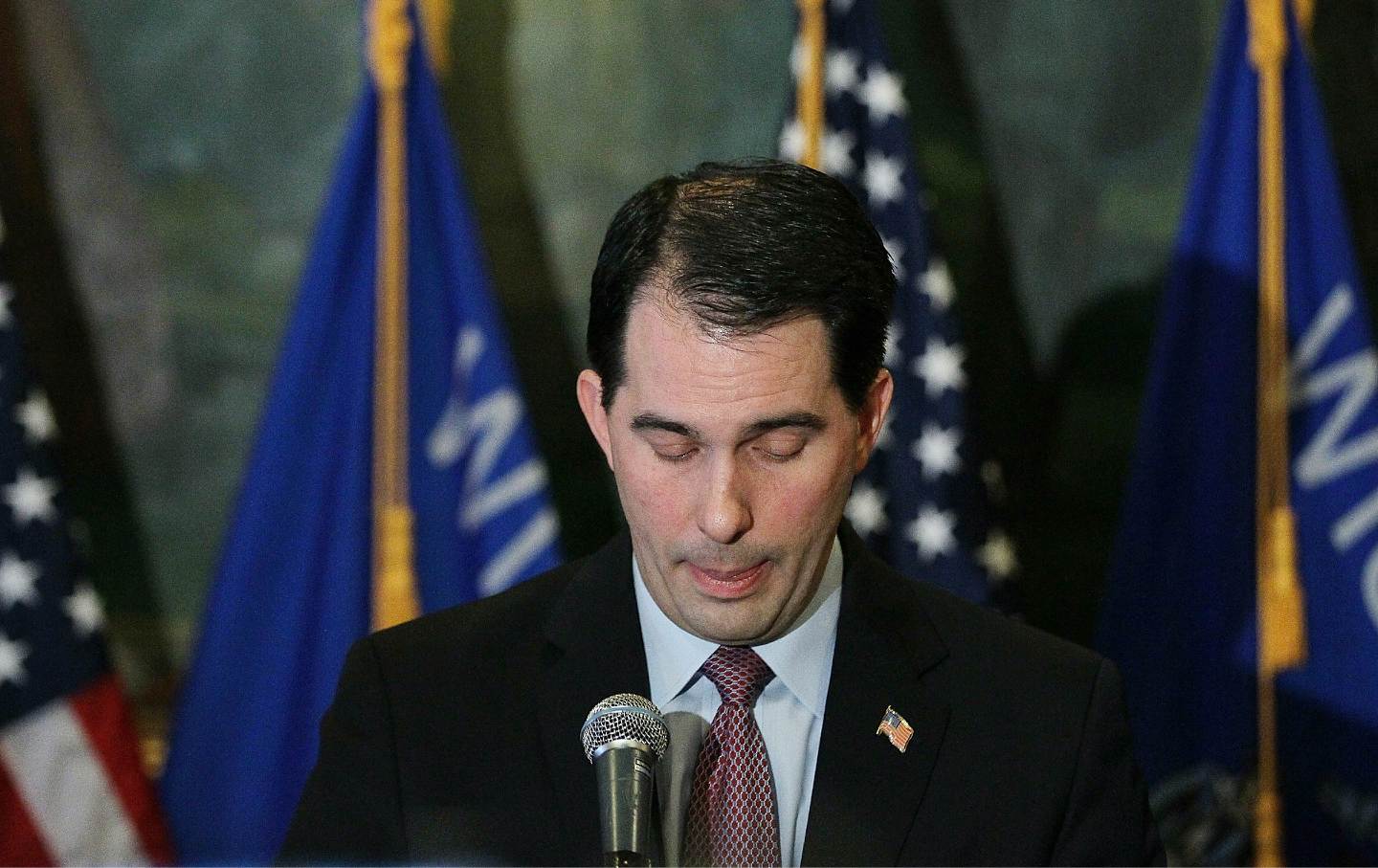Scott Walker's Anti-Union Law Could Be Undone by a Court That Respects the Constitution

Wisconsin Governor Scott Walker during a press conference at the Wisconsin State Capitol on March 7, 2011, in Madison, Wis.
(Justin Sullivan / Getty Images)
https://www.thenation.com/article/politics/scott-walkers-anti-union-law-could-be-undone-by-a-court-that-respects-the-constitution/
A right-wing state Supreme Court upheld the Wisconsin governor’s assault on workers. But the court now has a progressive majority and unions are challenging the law.
By John Nichols
What was most notable about former Wisconsin Governor Scott Walker and his allies in the Republican-controlled state legislature during the 2011 fight to upend collective bargaining rights and other protections for public-sector unions was a determination to win at any cost. Walker’s sweeping Act 10 proposal, which came at the opening of his eight-year tenure as governor, was so unpopular that it sparked mass protests in Wisconsin and skepticism from several moderate Republican legislators.
So Walker and his allies pushed hard to get the bill over the line. So hard, it was charged at the time, that the process by which their “Budget Repair Bill” was enacted—as well as the version of the measure that was finally passed—did not pass constitutional muster. There were numerous legal challenges to the legislation and lower-court victories for those who asserted that it was unconstitutional.
That wasn’t a tough case to make. To pass the law, Republican legislative leaders jiggered rules to alter the number of votes needed to approve a measure that dramatically undermined the ability of some public-sector workers to organize unions and collectively bargain. Just as troubling was the fact that the legislation was written in a way that singled out some union members for protections—particularly members of police and firefighters union locals that just happened to have endorsed Walker—that were denied to others.
In 2012, Dane County Circuit Court Judge Juan Colas struck down Act 10 on the grounds that it violated both the Wisconsin and US Constitutions. Specifically, Judge Colas ruled that the differential treatment of specific unions and their members violated First Amendment guarantees of freedom of association and expression, not to mention the equal protection guarantees that are a bedrock of constitutional law.
FULL story at link above.
